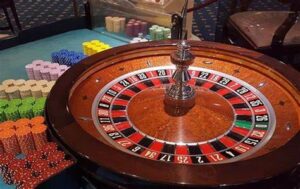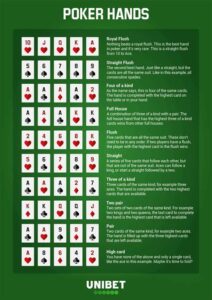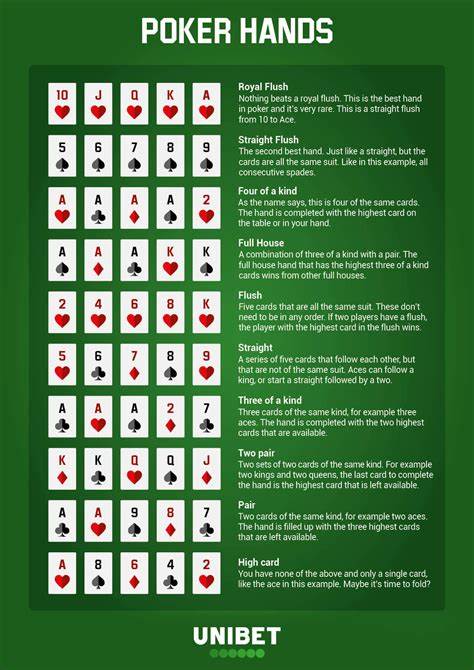
Explore Key Insights into the Dangers of Big Bets, as We Debunk Widespread Myths and Guide You through Understanding the Risks of High-stakes Gambling Effectively.
High-risk, High Reward? Debunking Myths in High-stakes Betting
- Unravelling the Myth of Guaranteed Big Wins
- The Psychology Behind High-stakes Betting Fascination
- Understanding the Odds: Not All Bets Are Equal
- The Impact of High-stakes Betting on Personal Finance
- Strategies to Mitigate Risks in High-stakes Gambling
- The Role of Luck Vs Skill in Betting Success
Unravelling the Myth of Guaranteed Big Wins
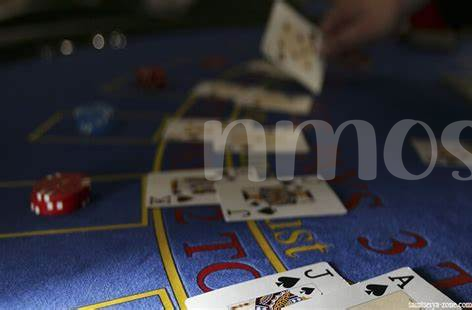
The allure of striking it rich with a single gamble tempts many into the high-stakes betting landscape. Yet, the belief in guaranteed big wins is a misleading narrative that glosses over the inherent uncertainties of gambling. In reality, this world is far more unpredictable, with success coming from understanding rather than sheer luck. High-stakes betting isn’t a guaranteed ticket to wealth but a complex field where knowledge and caution are key.
Diving deeper, it’s paramount to grasp the reality that not every punt may lead to a pot of gold. The dream of overnight riches often clashes with the harsh outcomes, leading enthusiasts down a risky path. This fascination stems partly from tales of monumental wins, yet these are exceptions rather than the rule. The majority of players face outcomes that are not as lucrative, with the journey filled with more ups and downs than a steady climb to the top.
Here’s a simpler way to look at the odds:
| Outcome | Probability | Expectation |
|---|---|---|
| Win Big | Low | Occasional |
| Lose Big | High | Common |
| Break Even | Moderate | Possible |
Understanding these probabilities helps in navigating the high-stakes betting world with a more realistic perspective. It’s not about chasing the wind with the hope of scoring big but engaging with the knowledge of what’s at stake.
Ultimately, the pathway to potentially successful high-stakes betting lies in accepting the unpredictability and preparing for various outcomes. Strategies such as setting limits, understanding the odds, and acknowledging the role of luck versus skill are indispensable. Instead of falling for the myths surrounding guaranteed wins, a more measured approach, recognizing both the thrills and risks, can lead to a more satisfying experiance—even if the big win remains elusive.
The Psychology Behind High-stakes Betting Fascination
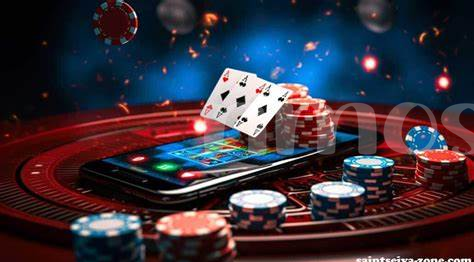
At the heart of high-stakes gambling lies a complex web of psychological triggers that drive individuals to take significant financial risks in search of even greater rewards. It’s not just about the money; it’s about the thrill, the anticipation, and the sheer excitement of the unknown. This thrill-seeking behavior can sometimes lead to a phenomenon known as the “gambler’s high,” akin to the buzz one might get from ‘happy pills’ or the rush of a ‘speed’ hit, although considerably more legal and sans the physical intake. Yet, the psychological effects can be strikingly similar, creating a compelling allure that’s hard to resist for many.
Understanding the risks of high-stakes gambling is crucial, yet many gamblers are blinded by the potential for large payouts, often disregarding the long odds stacked against them. This skewed perception isn’t just a matter of optimism; it’s deeply rooted in cognitive biases that casinos and betting platforms expertly exploit. The concept of “near misses” and the gambler’s fallacy contribute to a dangerous cycle of betting where wins are celebrated lavishly, while losses are rationalized away as being just one bet away from that big win.
Social factors also play a crucial role in the fascination with high-stakes gambling. The image of the high roller is glamorized in movies and media, portraying a life of luxury and success that many aspire to—which can be a slippery slope leading to the misunderestimation of the real risks involved. Friendship groups and online communities can further normalize high-risk gambling, encouraging bets that individuals might not have considered independently.
Strategies for mitigating these risks include setting strict limits on betting amounts and times and understanding teh cognitive biases at play. Tools and resources are available to help gamblers stay in control, from self-exclusion schemes to professional counselling. It’s about finding a balance and recognizing when the pursuit of the next big win is no longer about enjoyment but has become a compulsion. Recognizing the signs early and seeking help can prevent the pastime from spiraling into an issue with profound implications for personal finance and mental health.
Understanding the Odds: Not All Bets Are Equal
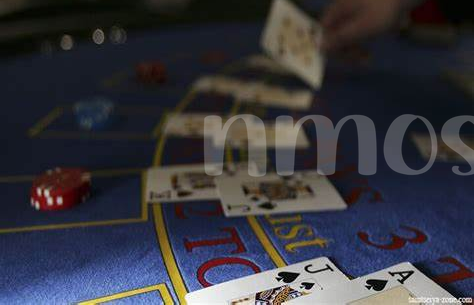
Diving deep into the heart of understanding the risks of high-stakes gambling reveals a complex matrix of probability and chance, where each wager carries its unique set of variables 🎲. It’s crucial to recognize that the allure of a “big win” is often shrouded in the statistical reality that not all bets are created equal. For instance, the odds offered in a straightforward game of blackjack significantly differ from those entangled within the spinning numbers of a roulette wheel. This distinction in probability underscores the importance of a bettor’s capability to navigate through the myriad of options with a discerning eye, eschewing the “one-size-fits-all” fallacy in favor of a more stratified and informed approach to wagering.
At the crux of making savvy betting decisions lies the pivotal role of doing one’s homework 📚; this involves not just understanding the game’s mechanics but also embracing the pharm land mindset of analyzing ‘the comp’- the composition of betting odds and their consequential payouts. Whether it’s leveraging ‘the vault’ of past performance data or employing ‘zero fill’ as a metaphor for setting limits to replenish one’s betting stakes, the difference between a seasoned gambler and an amateur often boils down to the mastery of these nuanced details. Such diligence might not eliminate the risks inherent in high-stakes gambling but can definately lead to more educated and, ideally, more judicious betting choices, marrying the thrill of the gamble with a respect for the odds stacked against or in favor.
The Impact of High-stakes Betting on Personal Finance
Venturing into high-stakes betting can seem like a daring leap towards financial prosperity, but the reality often unfolds differently, casting long shadows over one’s personal finance landscape. The thrill of potentially hitting the jackpot can seduce even the most rational individuals, leading to decisions that may overlook the stark risks involved. High-stakes betting doesn’t just threaten to dent one’s wallet; it can spiral into a vortex, sucking in savings, emergency funds, and even nest eggs, leaving behind a trail of regret and financial disarray.
Understanding the risks of high-stakes gambling is crucial, as it underscores not only the odds stacked against the bettor but also the potential impact on one’s financial well-being. The pursuit of hefty payouts can lead to a dangerous cocktail of debt and dependency, especially when losses are chased with more betting in the hopes of recouping losses stat. This cycle can ultimately compromise not just the bettor’s financial health but also their mental well-being, as the stress of mounting debts and the pressure to win big can be overwhelming.
Furthermore, the ramifications extend beyond the individual, potentially straining relationships and jeopardizing future financial security. Investments that could have been channeled into wealth-building opportunities are instead squandered in the ephemeral hope of striking it rich. High-stakes gambles can thus morph from a leisurely pastime into a perilous quest, ensnaring individuals in a web of financial uncertainty and regret.
Strategies to mitigate these risks involve setting strict boundaries, sticking to a budget, and understanding that, in the realm of high-stakes betting, the house always has the edge. It’s essential to approach gambling with a clear head and realistic expectations. Remember, the allure of quick riches can sometimes lead to a path of financial ruin, making temperance and prudent financial planning paramount. In the end, safeguarding one’s financial future from the potential fallout of high-stakes betting is not just advisable—it’s imperative.
Strategies to Mitigate Risks in High-stakes Gambling
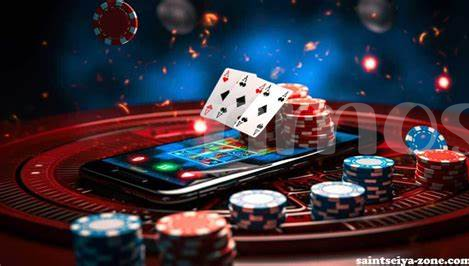
Venturing into high-stakes gambling without an appreciation of the risks is akin to diving into deep waters without knowing how to swim. A fundamental strategy is to set strict limits, both on how much one can afford to lose and the amount of time spent gambling. This approach ensures that the thrilling pursuit doesn’t morph into a devastating financial undertow. 🌊 It’s essential, too, to conduct a ‘meds check’ – not the pharmaceutical kind, but a thorough evaluation of one’s financial health, similar to how a patient reviews medication with a healthcare provider to avoid adverse reactions. This step forces a gambler to confront the reality of their financial situation and the potential impacts of their betting habits.
Diversification is another crucial tactic, much like an investor spreads out risk in a portfolio. Placing all your bets on a single high-risk game is the equivalent of putting all your eggs in one basket – a recipe for disaster. Instead, spreading stakes across different types of bets can help manage losses and maintain the ability to play another day. 🍳 And just like the ‘magic mouthwash’ provides relief in medical scenarios, having a backup plan for when things go south can soothe the financial sting of losses, underscoring the importance of an exit strategy.
| Strategy | Description | Emoji Symbol |
|---|---|---|
| Limit Setting | Imposing financial and time boundaries on gambling activities. | 🕒 |
| Financial Health Check | Evaluating one’s financial situation before engaging in betting. | 💼 |
| Diversification | Spreading bets across various games to minimize risks. | 🌐 |
| Exit Strategy | Having a predefined plan to stop gambling to avoid further losses. | 🚪 |
Lastly, appreciating the role of knowledge and skill in betting can not be overstated. While a dose of luck can lead to occasional wins, long-term success in high-stakes gambling often rests on a player’s ability to make informed decisions and react strategically to unfolding events. This means dedicating time to understand teh games inside out, much like a pharmacologist studies the effects of medications, thereby ensuring that decisions are not left to chance but are influenced by skill and strategy. Acomplish this, and the volatile seas of high-stakes gambling might begin to feel a little less treacherous.
The Role of Luck Vs Skill in Betting Success
Venturing into the world of high-stakes betting brings forth the age-old debate: is success a matter of luck, or does it hinge on skill? 🍀🎲 The truth lies somewhere in the middle, showcasing a complicated dance between chance and strategy. For beginners, the allure of ‘ghost tablet’ wins – those seemingly magical successes that appear out of nowhere – might seem to hinge purely on luck. Yet, seasoned punters know that a ‘Pharm Party’ level of detailed knowledge about the game, its odds, and the ability to read both circumstances and opponents plays a significant role.
Understanding this balance is crucial. While luck can never be completely discounted – indeed, it’s what makes the first card shuffle or the roulette spin so exhilarating – skill undeniably shapes a gambler’s fortunes over the long term. Unlike a ‘Z-Pack’ that promises a quick cure, there’s no fast track to betting success. Knowledge, experiance, and discipline stand as the pillars of proficient betting. Players who invest time in learning the nuances of a game and develop strategies are similar to pharmacists meticulous in their care, improving their odds of winning significantly.
However, it’s important to note that even the most skilled bettor faces losses. The unpredictability of high-stakes betting means outcomes can swing wildly – a fact that can lead to the dangerous waters of chasing losses. This phenomenon, akin to the ‘Junkie’s Itch,’ where the craving for a win becomes a compulsion, highlights the dark side of overestimating skill over luck.
In the end, a balanced view towards the roles of luck and skill is akin to understanding the importance of both generics and brand-name medications. Each has its place, and wise is the bettor who recognizes this, leveraging both where applicable. 🌟 By embracing the unpredictable nature of betting while sharpening one’s skillset, individuals can navigate the high-tides of high-stakes betting with a keener sense of when to ride the wave and when to watch from the shore.


